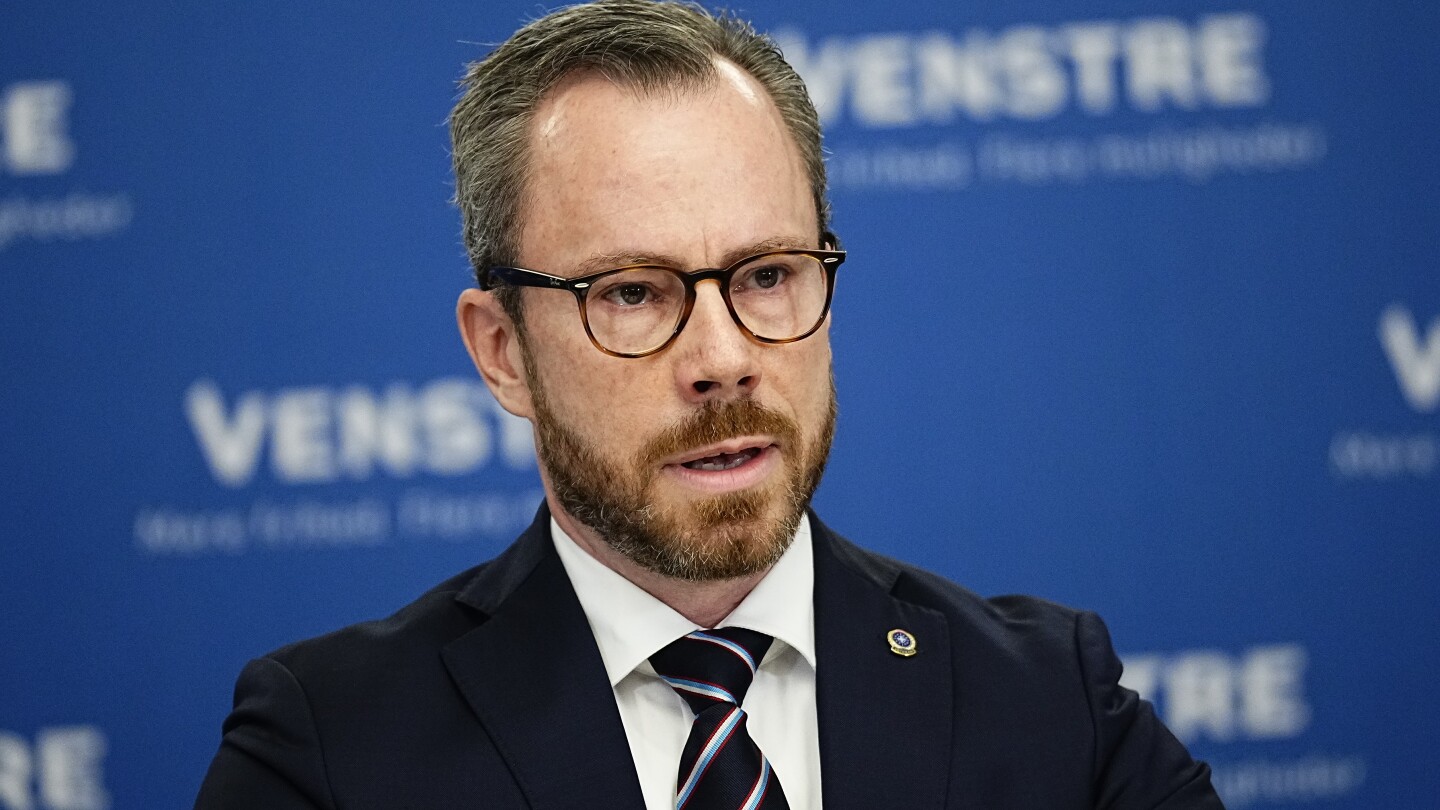COPENHAGEN, Denmark (AP) — Denmark’s deputy prime minister and economy minister announced Monday he was leaving politics and stepping down as head of the center-right Liberal Party to spend more time with his family.
The Liberals, however, are staying on in the three-party governing coalition, which has been in office since December 2022.
For now, Defense Minister Troels Lund Poulsen would take over Ellemann-Jensen’s posts and take on the roles of deputy prime minister and economy minister.
A visibly moved Ellemann-Jensen said Monday he was taking the consequences following internal party criticism over dwindling support. He said he is resigning because he didn’t want to stand in the way of his party’s revival.
The party had seen support plunge from 24.6% in September 2019, when he became party leader, to 8.7% in an Oct. 3 opinion poll.
Critics also alleged that Ellemann-Jensen was too weak of a figure in a government where Prime Minister Mette Frederiksen and Foreign Minister Lars Løkke Rasmussen were taking up much of the limelight.
“I am taking this decision because it is the right thing for the Liberal Party,” Ellemann-Jensen said and insisted his sick leave was not a factor in his decision. Earlier this year, he was on a five-months sick leave following a medical check-up.
Senior party member Stephanie Lose will assume the party leadership until a party convention next month.
On Aug. 22, a day after Ukrainian President Volodymyr Zelenskyy had thanked Danish lawmakers for providing Kyiv with F-16 warplanes, Ellemann-Jensen swapped posts with Lund Poulsen. Ellemann-Jensen became economy minister while Lund Poulsen became defense minister.
During Ellemann-Jensen’s sick leave, Lund Poulsen had acted as defense minister.
Frederiksen announced a majority coalition that crosses the left-right divide on Dec. 15, 2022, following the Nov. 1 general elections. It was the first time in 44 years that such a centrist government had been formed, bringing an end to the two blocs that have opposed each other for decades.
The Liberals joined Frederiksen’s center-left Social Democrats and the centrist Moderate party headed by Foreign Minister Lars Løkke Rasmussen — a former prime minister who once headed the Liberal Party but left it and created the centrist Moderates.
Ahead of the 2022 election, the Liberal Party had splintered. Løkke Rasmussen had created a new party as did former immigration minister Inger Støjberg, who then was the Liberal Party deputy leader.
After the fracturing, Ellemann-Jensen had tried to rebuild the party but the two newcomer parties had eaten away support for the Liberals.

